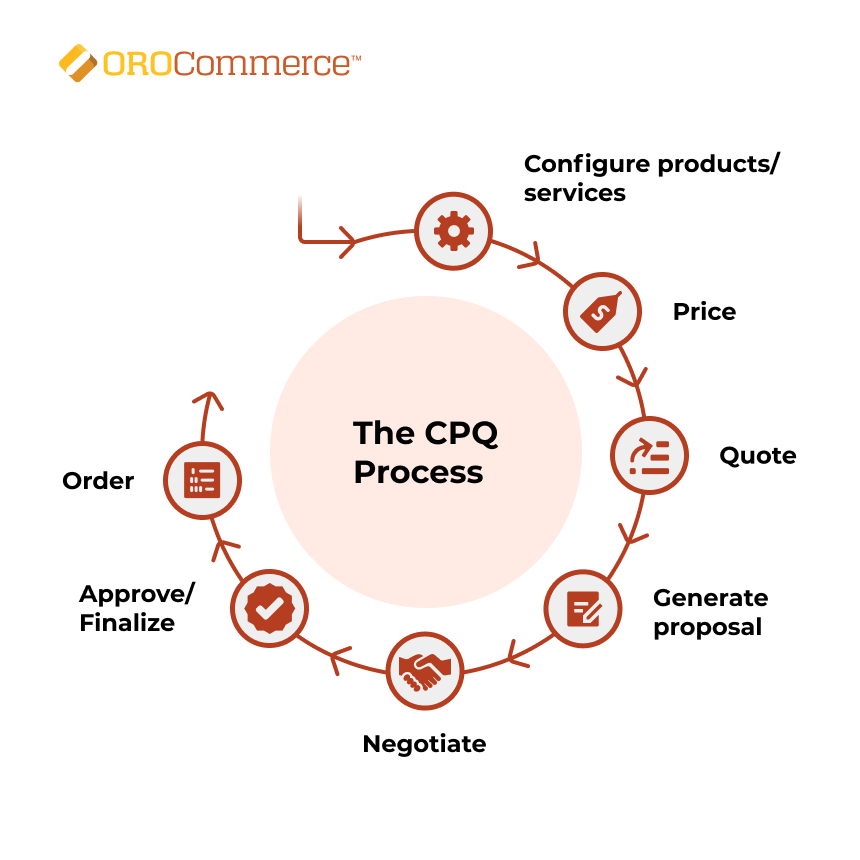By Thomas R. Cutler
During the past decade there has been exponential growth in two technology segments, B2B eCommerce and CPQ (Configure, Price, Quote) solutions. Both have merit and until now they have been viewed as mutually exclusive. Of course, that is false.
Since the data metrics accessed to navigate customized, engineered-to-order manufactured products require detailed production specifications, companies require sales RFQ and proposals that meet their exacting requirements. Off the shelf solutions rarely require a CPQ solution. The other data accessed in CPQ is the “P” (Price) which must be managed in all B2B eCommerce solutions.

Different dealers, distributors, regions, and currencies are algorithmically evaluated often based on seasonality, prior pricing spikes, and now more than ever, inflation. Material costs vary greatly and the bidding specifications on proposed manufactured products may change with increased raw material costs. All of these elements must be assessed with a CPQ system to ensure profitability can be maintained. Finished goods, however, frequently need pricing adjustments to accommodate market willingness to pay more and stay competitive. The B2B eCommerce technology can better handle these market-driven fluctuations.
Now there is the pragmatic and functional use of data into third-party software systems. An application programming interface (API) is a software interface designed to be used by other software for integration. Ordinary software programs are used by a (human) computer user, an API is a software program used by another software program.
Questioning the merits of CPQ
Despite the vast sums of venture capital put into companies like Zilliant ($92M), Pricefx ($65M), and DealHub ($60M in June 2022), there is a new movement afoot questioning the efficacy of an API bridge, favoring slightly customized B2B eCommerce.
there is a new movement afoot questioning the efficacy of an API bridge, favoring slightly customized B2B eCommerce.
Many are questioning whether a CPQ solution is needed at all. Traditional eCommerce platforms may not be able to replace CPQ, but best-in-class eCommerce solutions are able to do so offering offer native configurable product functionality. According to Yoav Kutner, CEO and co-founder of OroCommerce, “This option is quite basic, but it can be customized and extended. Providing ‘product bundling’ as a top priority feature is intentional,
specifically because it will improve the way current configurable products work and make it basically a CPQ replacement.”
Investigating these claims, it was determined that the B2B eCommerce solution has both quoting and quote negotiation functionality native in the
system, making it possible to smoothly negotiate configurable orders. Similarly, configurable rules and workflows allow one to set up any logic behind product bundling or quoting and ordering processes.
Connecting a CPQ to B2B eCommerce via the API is also an option but there is little justification for that approach. Building the integration will cost some time and resources and require the purchase of two licenses (CPG + eCommerce). Better to invest once into the customization rather tweaking the system to process needs. Kutner suggested, “An open-source customer relationship management (CRM) solution must include customer interaction data capture, marketing tools, dashboards, and more. Customer interactions, such as support tickets, email responses, and product views, are captured and tracked across multiple touchpoints, including B2B and B2C online stores, POS systems, email campaigns, and social channels.”

Kutner asserted that when customer profiles are automatically synchronized and accounts are merged, removing any duplication of information keeps an organized methodology, even when interfacing with CPQ technology. Users manage contacts, accounts, leads, and opportunities, create targeted, segmented marketing campaigns, track performance through customizable dashboards, and generate a range of reports.
According to Gartner, the CPQ software market grew by 15.5% in 2019 but it can be difficult to navigate because not all vendors focus on the same aspects of configuration. For example, some CPQ software emphasizes price optimization at the expense of product customization.
Legacy CPQ solutions often require long implementation periods and code-heavy customization, offering little flexibility TechCrunch recently reported. B2B eCommerce is more holistic offering a view of sales teams’ activities, actions, and insights. Kutner noted that the pandemic forced sales teams to quickly evolve from traditional sales processes to remote selling. The accelerated digital transformation is here.
CPQ systems are not a panacea. Data that is neither current nor accurate generates proposals with inflated prices or inaccurate delivery times. B2B eCommerce tools are more sophisticated than CPQ solutions despite the millions being invested by venture capital.
 Author Profile:
Author Profile:
Thomas R. Cutler is the President and CEO of Fort Lauderdale, Florida-based, TR Cutler, Inc., celebrating its
24th year. Cutler is the founder of the Manufacturing Media Consortium including more than 9000 journalists, editors, and economists writing about trends in manufacturing, industry, material handling, and process improvement.
Cutler authors more than 1000 feature articles annually regarding the manufacturing sector.
Cutler has established special divisions including African manufacturing, Colombian manufacturing, Gen Z workforce,
and Food & Beverage manufacturing/logistics. Cutler was recently named the Global Supply Chain journalist of the year for the second time in a row. Over 5200 industry leaders follow Cutler on Twitter daily at @ThomasRCutler. Contact Cutler at trcutler@trcutlerinc.com.
